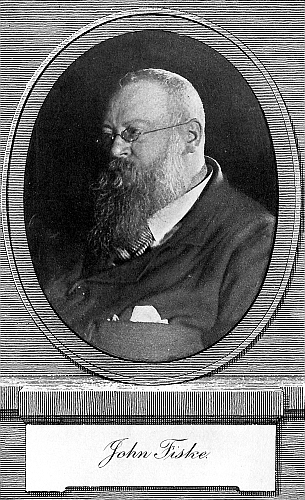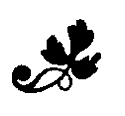LITTLE MASTERPIECES OF SCIENCE
 John Fiske
John FiskeLittle Masterpieces
of Science
Edited by George Iles
MIND
By
| John Fiske | Oliver W. Holmes |
| James Sully | Henry Maudsley |
| Francis Galton | William B. Carpenter |
| William H. Hudson | Thomas H. Huxley |

DOUBLEDAY, PAGE & COMPANY
1902
Copyright, 1902, by Doubleday, Page & Co.
Copyright, 1895, by D. Appleton & Co.
Hyphenated and accented words have been standardized. Obvious printerserrors, including punctuation have been silently corrected.Undevelopment, unseizable, traru, although not valid words, make sensein the context and I have therefore left them as in the original. Allother inconsistencies have been left as in the original except wherenoted at the end of this file.
PREFACE
The study of mind was advanced as remarkably during the nineteenthcentury as any of its sister sciences. Here, as elsewhere, observationgrew keener, new instrumental tests were adopted, and interpretationbecame more sagacious. A fact as commonplace as the length of humanbabyhood, when it came under the eye of John Fiske, went far to explainthe foundations of the family, and how it came about that primitive man,to whom much was given, so added to his gifts that at last the gulfbetwixt him and his next of kin became all but infinite. Of the newstudy of children, which owes a weighty debt to Darwin and Preyer,Professor Sully is a worthy exponent. In this volume he has something tosay of the deepest interest to parents, to all students of the earlyunfolding of human faculty. In the inquiry of Mr. Galton regarding Twinswe have a sterling example of the statistical method. Who shall callthat method dry and unfruitful after he reads what it brought to thispatient and discerning investigator?
If it be assumed that there is nothing in the mind that has not been inthe senses, it becomes a question of importance, How may sight, thenoblest of the senses, come to its best estate? Has it been affected forgood or harm by civilized life? This question is discussed with shrewdhumour by Mr. Hudson in his chapter on the sight of savages. One of themost promising fields of research directs its quest to the richescommonly hid beneath the surface of the mental sea. It seems probablethat before the close of the twentie